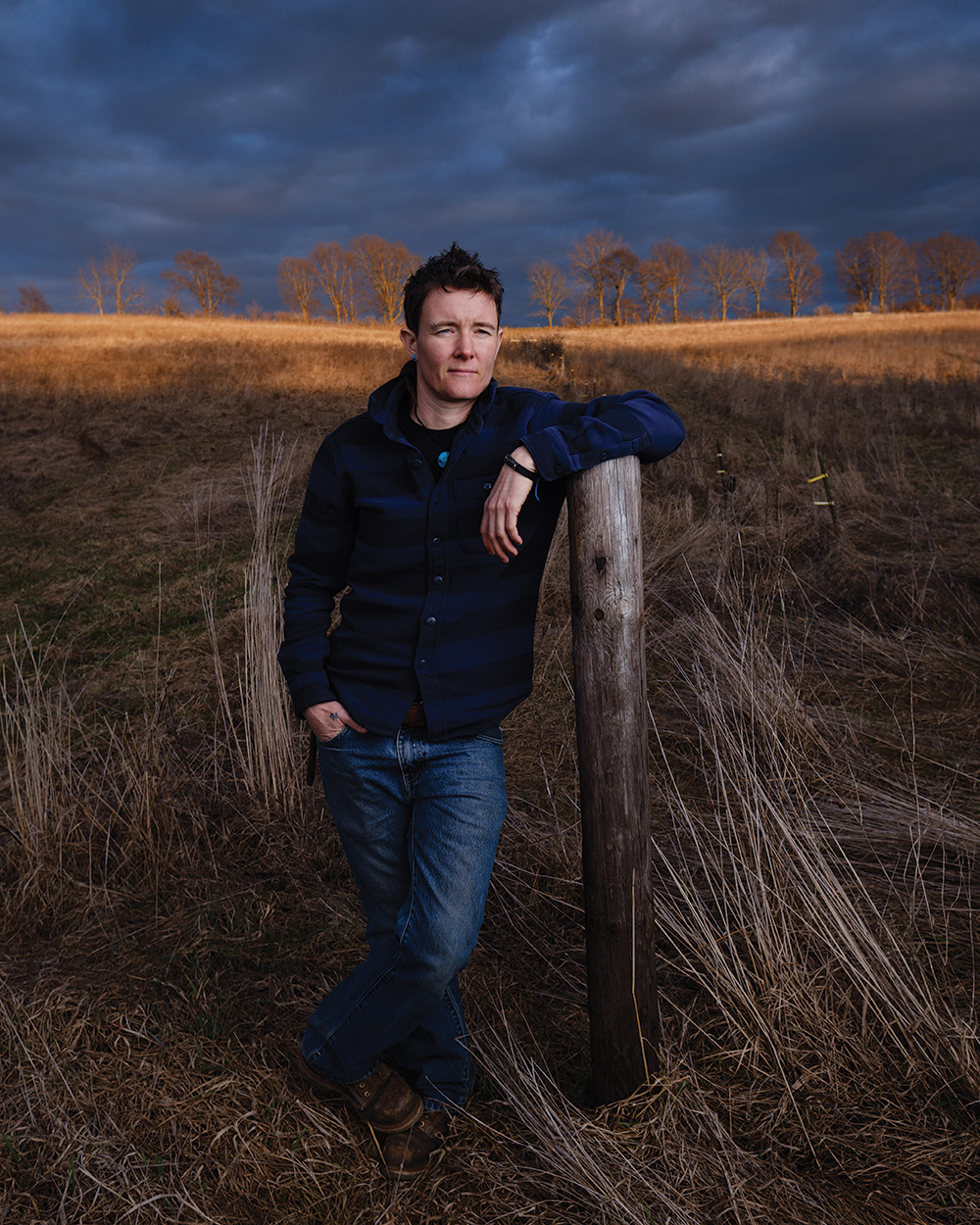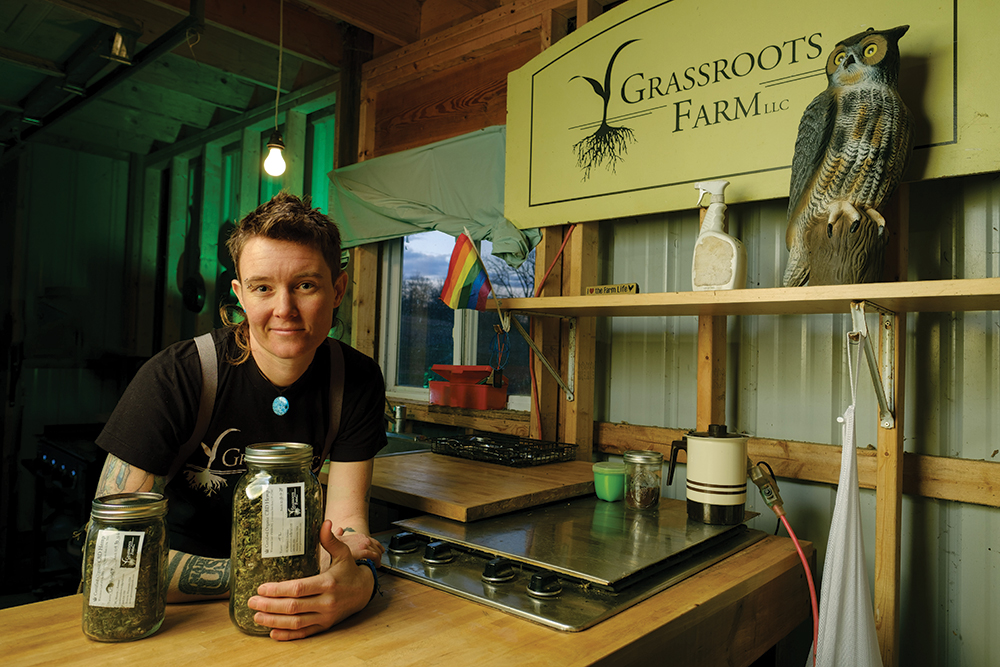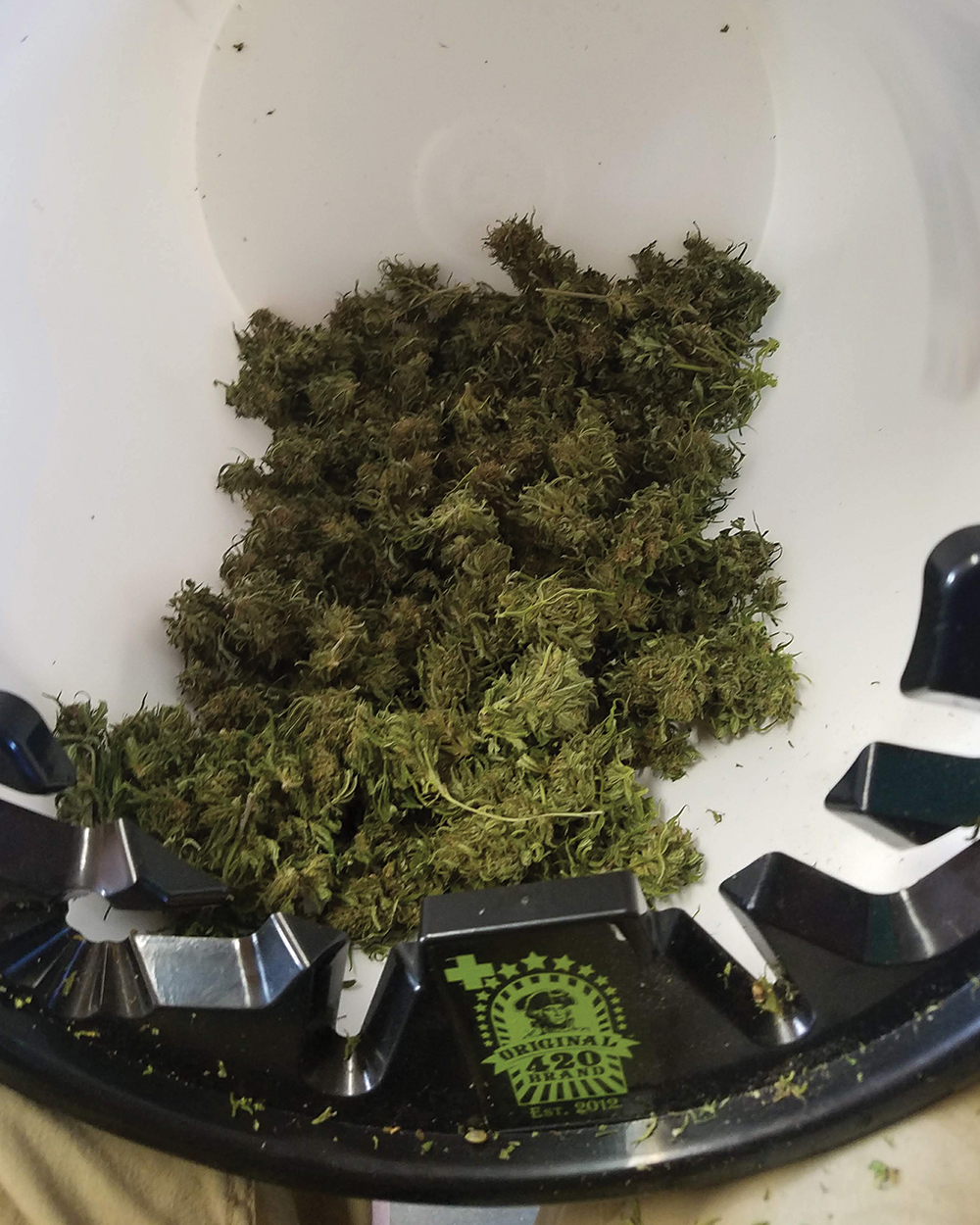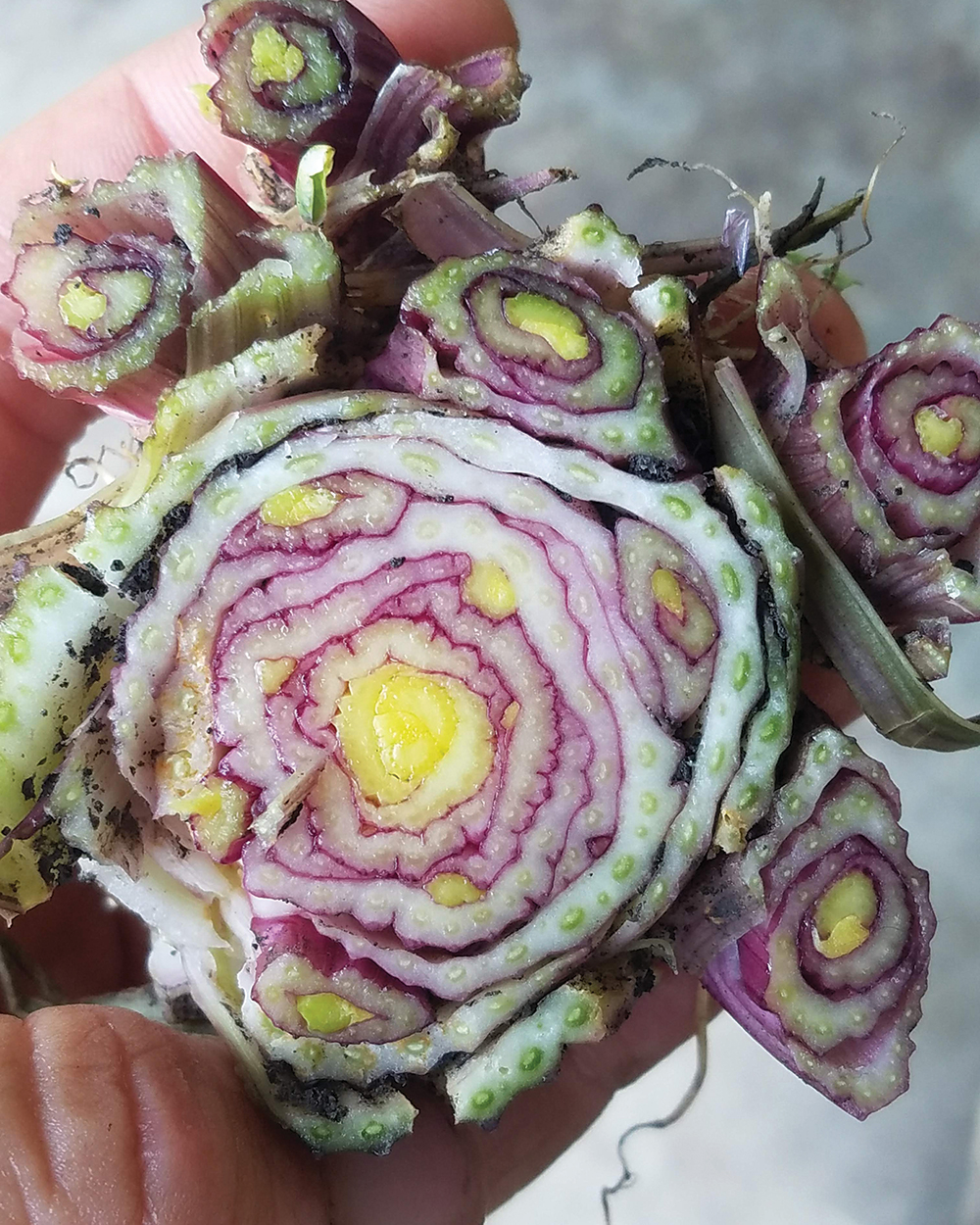Even before the coronavirus pandemic, farmer FL Morris of Grassroots Farm in Monroe thought a lot about food security. For many years she’s been committed to participating in and leading a more equitable and just way of growing and sharing food.
Since she purchased land with her mother just over a decade ago, FL has grown just about everything, from her first garlic crops to squash to peppers, and most recently, hemp for CBD production. Whether it’s packing vegetables in boxes for community supported agriculture members or driving crops to restaurants or farmers’ markets, she’s always wondered how she could help to tighten up the connections between farmers, laborers, and customers.
And then came COVID-19. For all of us, among the many socio-economic disparities exposed by the pandemic in the United States, our nation’s food supply and how our food is grown, transported, processed, sold, and served to us is one that is touching everyone.
The nation is struggling with the panic buying that leaves empty shelves where potatoes, onions, chicken, and toilet paper were once well-stocked. Grocery stores are hiring the workers who once waited tables at now-shuttered restaurants. Without the convenience of restaurants, we have to remember how to cook, plan meals, and adjust to unpredictability at grocery stores. For those who face more economic challenges, stretching WIC funds to feed kids meals they would have eaten at school is making food insecurity a starker reality for parents.
FL says the flaws in our food system are revealing themselves.
“We’re all feeling it. There’s anxiety, there’s unease and pain, there’s a fear of uncertainty and fragility. I also think (when I talk to other farmers) that there is so much optimism and a silver lining in having our systems unravel. What’s coming out of this is an opportunity to rebuild those systems. It’s clear one of the greatest inequities to address is how people don’t have access to fresh food.”
Early lessons in food insecurity
FL’s empathy with those who experience food and economic insecurity is deeply personal. After her parents divorced, her mother moved the family to northern Wisconsin.
“We had a comfortable life in California,” she explained, “but in Wisconsin we experienced pretty severe poverty when my mother had to start over and raise two kids on a minimum wage job. It was a shock, and I experienced food insecurity for the first time.”
FL said southern California had more diversity and northern Wisconsin had little culture and few-to-no out queer role models.
“Even when I was a very young person, when I was allowed to dress myself … maybe age three or four? … I gravitated toward more masculine clothes and toys,” she said. “I loved playing with matchbox cars and ninja turtles. I was a classic 80s tomboy.”
FL eventually came out in her second semeter of high school. As a masculine-presenting lesbian, she experienced bullying and what it felt like to be on the margins. Anti-gay sentiments spoken by politicians were echoed in the violence, harrassment, and rejection she experienced.
“I had to take on the challenges of queerness and being different in my discovery of the world and different types of thought and religion. I didn’t do well in my classes, and I turned to drugs, skipped school, committed petty crime, and struggled to make healthy choices.”
Fortunately she was able to get help through an individualized education plan that allowed her to make up for skipped classes, graduate early, and go to an all-women’s art school. She had always had an interest in art which she describes as a kind of a shield from bullying. Once people saw her using her artistic talent, they left her alone.
“By the time I went to college, I found my power,” she said. “Since I got out of high school early, no one knew I was 16, and I lied to my peers about my age. College was an incredibly important social experience. But even though I loved art, it wasn’t challenging me, and I didn’t see a career path in it. My school mates worked a lot of service jobs and maybe got a gallery position. I didn’t want to always be chomping at the bit to make money or be a starving artist.”
Practical creativity
While she had the urge to create, she also craved doing something practical. She started looking into woodworking jobs, explored cabinet or furniture making, and wanted to find an apprenticeship with a female woodworker. In this search, she turned her attention back to the Midwest and found an advertisement in Madison’s alt-weekly, Isthmus, for a farming apprenticeship which became the springboard for her farming career.
“It wasn’t much money, but I took the job and it changed my life. That’s where I got to experience the romance of farming and the seasons changing,” said FL. “I discovered the thing that happens when you spend all day outside and you get to feel that connection with the earth. In the morning it feels like the earth is taking a breath in and you can feel it exhale at night. I’d never really had that exposure before to the creativity of farming, the colors, the textures. I enjoyed getting dirty. It seemed like the dirtier I got, the more fun I was having.”
FL started eating better. She felt the satisfaction of packing a box of vegetables for friends and customers. The apprenticeship led to other jobs, more education on farming, increased responsibilities, managing more crops, and selling at farmers’ markets.
Spending a lot of time in the field and on the road gave FL time to think about our food system.
“Then I got to spend some time managing an urban farm in Chicago that had a job training program for formerly incarcerated people, and that was a formative experience for me,” she said. “I learned a lot about inequality in food access, what creates a food desert, and what it’s like to live in one. It’s complicated. It’s about money but it’s also about storing food, having access to kitchens with tools, knowing how to prepare food so it’s delicious, how to eat it and have a palate for veggies. No one has the time to invest in cooking healthy, whole foods. Time is something that keeps people from eating healthy. It’s about money, education, and time.”
A land of her own
In 2007 she worked with her mother to purchase land in Green County. FL describes her mother as a life-long gardener who worked for years to build up her career as a legal secretary to the point where she could help to invest in farmland. Once FL had her own land to grow food and establish Grassroots Farm, she joined a farmers cooperative network to supply vegetables to grocery cooperatives and restaurants in the region, including high-end restaurants in the queer-friendly Andersonville, Chicago.
“I got in on the ground floor of a newly forming farmers market in Andersonville, and that helped me grow my farm over seven seasons,” she said. “I started developing relationships with people, people joined my CSA, and I had a market stand where I wasn’t the highest priced vendor. I couldn’t watch people walk away from my stand if my prices were too high.”
Through her stand at the farmers’ market, she learned how capricious markets can be. Sales depended on many factors that are out of a supplier’s control. The position of your stand, changing culinary tastes, and the weather can vary from season to season and from week to week.
“It was a difficult experience when food didn’t sell at a market and a lot of labor was wasted,” said FL. “After we’ve seeded it, potted it in the greenhouse, watered it every day for a month, brought it to the field, irrigated it, cultivated the land to remove weeds or mulched it, then harvested it, washed it, packed it, brought it however many miles to the market, and then stood out in whatever kind of weather… To not be able to sell it was disappointing.”
Those early years of starting her own farm were satisfying in terms of her relationships with customers, but the invisible hand of the market wore her out. She tried to keep her prices down and balance the costs of her labor and time, but she was not only competing with other farmers’ market vendors, but also with an international market that put vegetables from around the world on supermarket shelves.
“By the fall of 2016, I was standing alone in my greenhouse and felt like a hamster in a wheel,” she said. “I was seeding my fall crops, and I just thought, ‘Who am I trying to impress? I’m alone, I work all the time and I can’t seem to break the poverty line.’ My expenses to live were low—I covered expenses, and I had help from family, but I was essentially being paid around $2.00 per hour with no benefits. No matter how hard I worked, it didn’t translate to serving my mission in getting more food to people.”
It was like she hit a wall. Fellow organic farmers were facing the same stress of the market and climate change. She saw couples in farming break up. She questioned how she could keep going on her own. She needed a hiatus from the work on the farm and the model of business she had been pursuing.
A trip to Oregon gave her both the break she needed and also the inspiration to do something different. There she took on different jobs where she learned new skills from driving a semi to felling trees for timber. The time away also gave her time to think about more collaborative models of food production and how to bring more people together in organic farming in support of broader health of the community.
The promise of hemp and a kitchen for the community
By the end of 2018 Congress approved the Farm Bill. Among the usual provisions of the national law that encompasses everything from crop insurance to nutritional assistance for low-income Americans, this federal bill allowed farmers across the country to grow cannabis plants for industrial hemp.
The law has some restrictions and definitions of what distinguishes hemp from marijuana. For growers in Wisconsin, hemp has a promise of a sturdy crop that could be organically cultivated, easier to grow than many fussy vegetables, and used for a dizzyingly wide array of products.
FL was one of the 247 Wisconsin farmers to apply to the state to grow hemp in the first year. She jumped into it with not only the hopes of growing a profitable crop, but also as a way to ignite South Central Hemp, a cooperative that connects other local Wisconsin hemp farmers growing for the first time, too.
“I’d worked for several farming coops over the years, but this was my first time being a member of one and starting a nonprofit cooperative from scratch. Now I’m such a cooperative nerd,” she said. “I can see the power of a cooperative, especially when coops work with other coops. Through networking around hemp, growers are finding each other, including women and people from marginalized groups, and we’re starting a Madison-based worker-owned, certified organic CBD/hemp processing and manufacturing cooperative to be the next component in the supply chain.”
Growing hemp in Wisconsin, however, has some ups and downs. First-time farmers like FL took tremendous risks in growing plants with little-to-no institutional knowledge or support, crops that could fail, exceed the legal THC content limit, or not have a guaranteed market for the end product. In the second year of growing, when over a thousand new growers jumped into hemp farming, the hemp market experienced a glut where there were too many plants, poor harvesting weather, back-ups at processing facilities, and plants that were “too hot” with THC content that was too high to legally sell.
Still, FL is hopeful that the hemp cooperative and the future for hemp in Wisconsin will be profitable for farmers and for her big vision: bringing more people together in a local, organic food system.
She’s developed a community-powered kitchen proposal with the help of a nurse that is built on a vision beyond CSA shares and embraces a more interconnected plan for community health.
“We had a realization that CSA shares can’t be it. If you really want to improve health through good quality food, we have to get food grown by our community to our community in a way that creates meals as well as jobs and job training opportunities, worker shares, and trades,” she said. “In order to pilot this program, we’re going to need an industrial kitchen to serve as a place to prepare, package, freeze, or dry food as well as have a place to store food year-round for my community.”
She also sees a more collaborative approach as a way to pull in talent in planning, management, technical support, and advertising so that farmers can focus on farming rather than the hustle of marketing and sales at farmers’ markets or food availability lists for restaurants. When farmers grow what they are good at and at a scale that makes sense for their labor and their land, those working at the kitchen can prepare the growers’ fresh harvests or preserve the food for future meals.
Planning for the times ahead
The long-term impact of the pandemic on our local food system will take time to understand. Farmers still have to spend spring and early summer cultivating, seeding, and planting with their eye on the weather and the future, including FL, who is planning her next hemp crop.
She said she uses hemp biomass herself. “Hemp tea is amazing, and it has a calming effect. You can just add the flower and leaf trim to a tea ball and add it to hot water.”
But when asked about her favorite things to grow and eat, FL spoke glowingly about Grassroots Farm’s tomatoes and how you can drink a warm puree of tomatoes like a cup of coffee.
For information about Grassroots Farm, go to grassrootsfarmllc.com.






























0 Comments